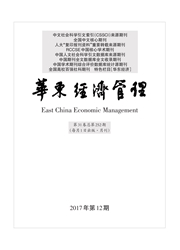

 中文摘要:
中文摘要:
文章在Grossman健康需求模型以及实践研究的基础上,运用来自中国24个煤炭资源型城市的经济数据和死亡率数据进行实证分析,结果表明经济发展和人口死亡率之间存在着显著关系,并且部分城市死亡率随着经济发展呈现出先增长后下降的倒U趋势。文章还对煤炭资源型城市安徽省淮北市进行个案研究,以实地发放问卷为数据来源,以健康自评为衡量健康指标,考察各因素对居民健康影响,发现性别、教育和职业地位对健康影响显著。
 英文摘要:
英文摘要:
Based on Grossman model of demand for health and practical research,this paper uses economic data and mortality data from 24 Chinese coal resources cities to do an empirical research.The results shows that economic development and population mortality related significantly,and there is an inverted U-shape relationship between economic development and population mortality rate in some cities.In order to investigate how each factor affects the health of the population,this paper selects the coal resources city Huaibei in Anhui province as a case,uses questionnaires as data sources,and uses health-assessment as the measurement of health indicators.The results show that gender,education and occupation affect health of human beings significantly.
 同期刊论文项目
同期刊论文项目
 同项目期刊论文
同项目期刊论文
 期刊信息
期刊信息
